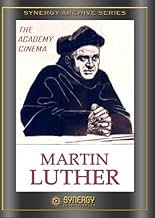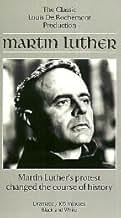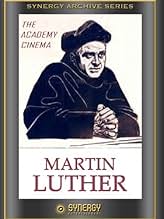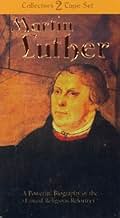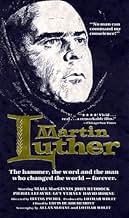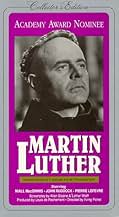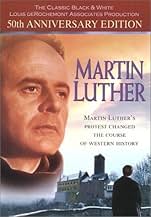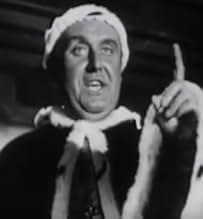Biopic of German priest Martin Luther (Niall MacGinnis), covering his life between 1505 and 1530 A.D., and the birth of the Protestant Reformation movement.Biopic of German priest Martin Luther (Niall MacGinnis), covering his life between 1505 and 1530 A.D., and the birth of the Protestant Reformation movement.Biopic of German priest Martin Luther (Niall MacGinnis), covering his life between 1505 and 1530 A.D., and the birth of the Protestant Reformation movement.
- Nominated for 2 Oscars
- 1 win & 4 nominations total
- Carlstadt
- (as Allastair Hunter)
- Katherine von Bora
- (as Annette Carrell)
Featured reviews
With the camera in the able hands of Oscar-nominated Joseph Brun, Niall MacGuinness gives a performance of evangelical zeal in what was probably his only leading role in a film.
The acting in the movie is excellent, as are the scenery and costumes, shown in stark black and white photography. The producers spared no expense to present the wide range of political and religious figures with whom Luther interacted. The dialogs are poignant and always clearly understandable over any background music. Unfortunately, my CD exhibits a rather poor video quality, considering that it is based on a post-WW2 b/w movie. Still, the film is fascinating to watch from beginning to end and, if shown in high school, would successfully replace a week of dry learning.
The costumes, sets and hairstyles were authentic and help transport the viewer to the past very effectively.
Luther's message and wisdom are amply portrayed and serve as a basis for anyone to examine their beliefs.
The film does not suffer from dating, even though it was made over 50 years ago. The black and white imagery imparts a sense of timelessness, worthy of the subject matter. The acting is, almost without exception, very natural and believable.
He was not a flawless figure. He was self-centered, and resented rival "heretics" (Zwingly, John of Munster, Calvin), and he would become really vicious towards the Jews for failing to follow his leadership into "true Christianity". In fact his diatribes against the Jews would become the true foundation of modern German anti-Semitism. But he remains the founder of Protestantism.
His flaws do not appear in this film, which was made by the Lutheran Church.
However the film is a pretty faithful account of his conflict with the organized Church, and how it led to the creation of Protestantism (and, in particular, Lutheranism). It gave Niall MacGinnis the best straight dramatic lead role in his career (the closest second is his Karswell, the villain in NIGHT OF THE DEMON). MacGinnis always was a superior supporting actor in small parts, so it is worth noting that when he was given an important part like Luther he did the part well.
Did you know
- TriviaThis movie was never released in Québec, Canada. At the time, Québec's movie censorship board (made up entirely of French-speaking Catholics) refused to approve this movie to be shown in Québec's movie theaters. Therefore, it could only be shown in the basements of Québec's Protestant churches.
- Quotes
Dr. Eck: Martin Luther! Do you think you are the only one who knows the truth?
Martin Luther: I will tell you what I think. I have the right to believe freely. To be a slave to no man's authority. To confess what appears to me to be true whether it is proved or disapproved, whether it is spoken by Catholic or by heritic.
Dr. Eck: Then you deny the authority of the pope!
Martin Luther: In matters of faith, I think that neither council, nor pope, nor any man has power over my conscience. And where they disagree with scripture, I deny pope and council and all. A simple layman armed with scripture is greater than the mightiest pope without it.
Dr. Eck: Heresy, Doctor Luther! Heresy!
Martin Luther: Heresy? So be it. It is still the truth!
- ConnectionsFeatured in Wormwood: Chapter 2: A Terrible Mistake (2017)
- How long is Martin Luther?Powered by Alexa
Details
- Release date
- Countries of origin
- Language
- Also known as
- Filmen om Martin Luther
- Filming locations
- Production companies
- See more company credits at IMDbPro
Box office
- Budget
- $500,000 (estimated)
- Runtime
- 1h 45m(105 min)
- Color
- Sound mix
- Aspect ratio
- 1.37 : 1

